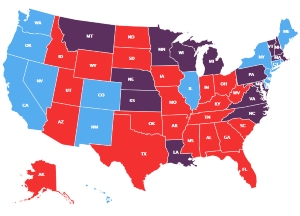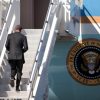In late November, 2013, U.S. Senate Majority Leader, Harry Reid moved to reform the Senate’s rules to eliminate the use of the filibuster on most presidential nominations. This page collates our contributions on the so-called ‘nuclear option’.
_____________________________________
 Since Senate Majority Leader Harry Reid used the so-called “nuclear option” to essentially end the filibuster on most presidential nominations on Thursday, there has been considerable speculation over the future of the filibuster on legislation. Joshua Huder argues that the filibuster, when used correctly, can foster bipartisanship and calls for it to be reformed rather than eliminated. He goes on to give specific recommendations on how to adjust the filibuster so it can once again incentivize the parties to work together.
Since Senate Majority Leader Harry Reid used the so-called “nuclear option” to essentially end the filibuster on most presidential nominations on Thursday, there has been considerable speculation over the future of the filibuster on legislation. Joshua Huder argues that the filibuster, when used correctly, can foster bipartisanship and calls for it to be reformed rather than eliminated. He goes on to give specific recommendations on how to adjust the filibuster so it can once again incentivize the parties to work together.
The nuclear option will increase polarization in the Senate and shift power to the executive branch
 The so-called “nuclear option” to limit the filibuster was talked about for years before Senate Majority Leader Harry Reid finally moved forward with it last week. Michele Swers describes this move as the culmination of years of increasing polarization in the Senate. She goes on to argue that the elimination of the filibuster will only make bipartisan deals more difficult to attain and will ultimately shift power away from the legislative branch and into the executive.
The so-called “nuclear option” to limit the filibuster was talked about for years before Senate Majority Leader Harry Reid finally moved forward with it last week. Michele Swers describes this move as the culmination of years of increasing polarization in the Senate. She goes on to argue that the elimination of the filibuster will only make bipartisan deals more difficult to attain and will ultimately shift power away from the legislative branch and into the executive.
The real danger of Harry Reid’s “nuclear” rules change in the U.S. Senate may be the fallout.
 On Thursday, Democratic Senate Majority Leader, Harry Reid, invoked the long-awaited ‘nuclear option’ to effectively eliminate the threat of filibusters on most presidential nominations. Lauren C. Bell looks at the history of the filibuster in the U.S. Senate, finding that its occurrence greatly increased after the last change to Senate rules in 1975. She argues that despite the appearance that this new rule change will help the Senate to operate more efficiently, past experience has shown that obstructions in the chamber are likely to increase. Given the already polarized nature of Congress, bipartisanship and cooperation are likely to suffer even further.
On Thursday, Democratic Senate Majority Leader, Harry Reid, invoked the long-awaited ‘nuclear option’ to effectively eliminate the threat of filibusters on most presidential nominations. Lauren C. Bell looks at the history of the filibuster in the U.S. Senate, finding that its occurrence greatly increased after the last change to Senate rules in 1975. She argues that despite the appearance that this new rule change will help the Senate to operate more efficiently, past experience has shown that obstructions in the chamber are likely to increase. Given the already polarized nature of Congress, bipartisanship and cooperation are likely to suffer even further.











